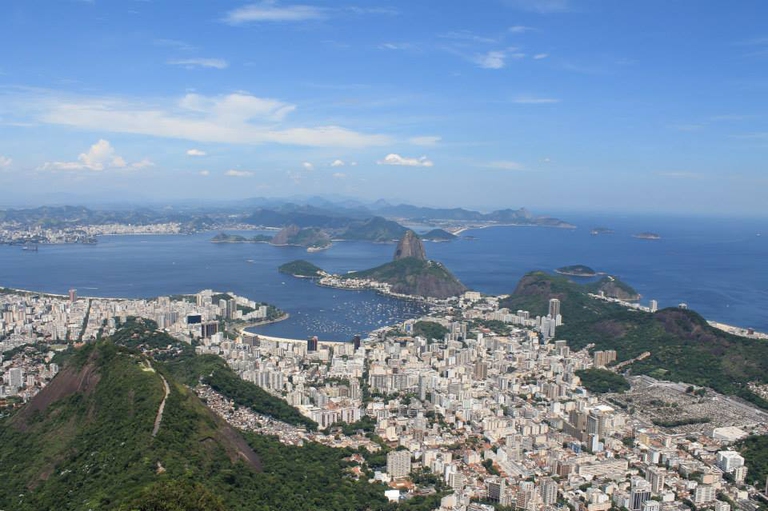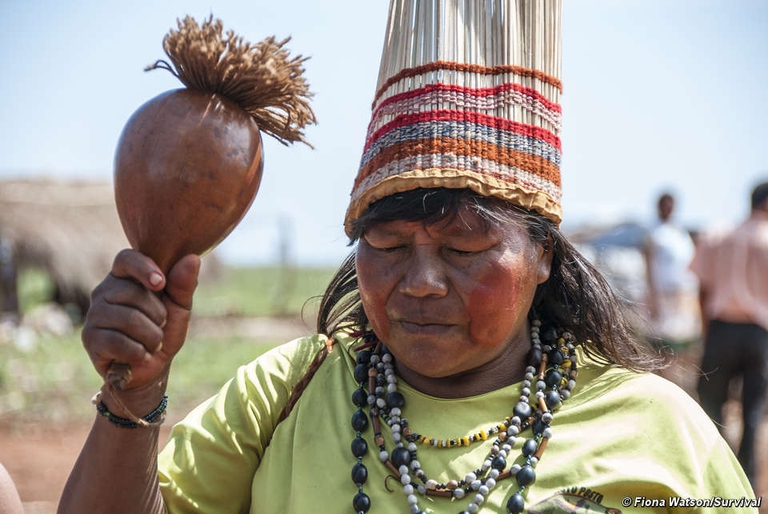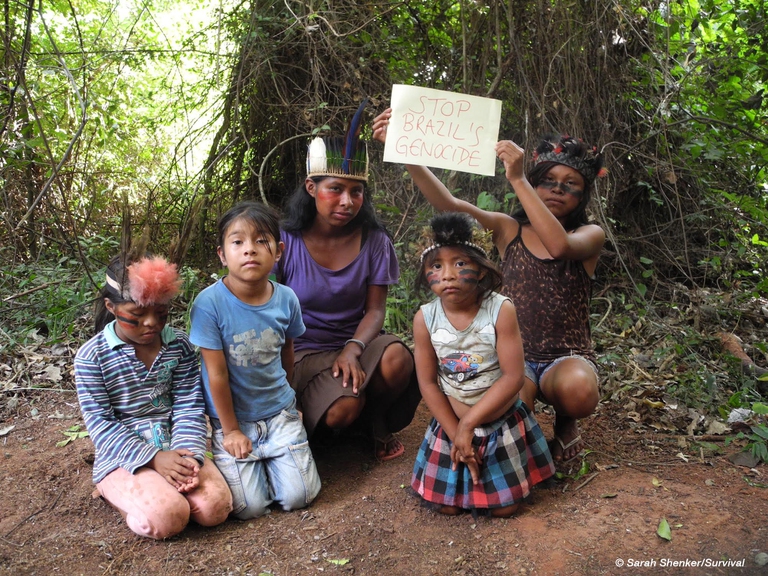
A special report from the Yuqui territory delves deep into the dreams, challenges, joys and sadness of one of Bolivia’s most vulnerable indigenous groups.
Stop Brazil’s Genocide is Survival’s campaign highlighting the contrast between the glitz of the Olympics and a dark underbelly: the host country’s continued violation of indigenous people’s rights.
Survival International, an NGO that works to safeguard indigenous peoples’ rights worldwide, is highlighting the plight of Brazilian Indians ahead of the Rio 2016 Olympic Games. The campaign Stop Brazil’s Genocide, launched in April, calls for the upholding of the rights of uncontacted tribes, among the most vulnerable peoples on the planet, and the scrapping of proposals to change the Brazilian constitution. Among these is Proposed Constitutional Amendment 215 (PEC 215), which would drastically weaken indigenous peoples’ control of the lands they rely on for their survival.
In view of the kickoff to the Olympic Games on the 5th of August we speak to Sarah Shenker, Survival International campaigner, to find out more about what Brazil needs to do to protect its native citizens.
What obstacles do indigenous peoples face in Brazil?
Brazilian Indians are subjected to genocidal violence, slavery and racism. Their lands and resources are being stolen in the name of “progress” and “civilisation”. The country’s constitution demands that all indigenous lands be mapped out for their exclusive use, but in some cases these territories are being invaded and destroyed by illegal loggers, miners, drug-traffickers. In others they’re being opened up for dams and highways, and in yet others tribes are kept off their ancestral lands because they remain under the control of rich and powerful landowners.
For example, most of the Guaraní’s ancestral land was stolen from them and destroyed by ranchers to make way for cattle, soya and sugarcane. This has left thousands of members of this tribe living in overcrowded reserves and roadside camps with alarmingly high rates of malnutrition and disease and one of the highest suicide rates in the world. Their leaders fighting to return to their land are being assassinated one by one.
Uncontacted tribes face catastrophe unless their land is protected. Survival is highlighting the plight of the Kawahiva people who are living on the run from loggers and who won’t survive unless their right to their ancestral lands is upheld. Pressure successfully encouraged the former Justice Minister Eugênio Aragão to sign a decree to map out and protect this territory, and Survival is now campaigning for this to be implemented.
What is PEC 215 and how will it affect local communities?
PEC 215 is another of the many threats Brazil’s tribes face today. It is a proposed change to the constitution which, if implemented, would give anti-Indian landowners the chance to block the recognition of new indigenous territories – and it might even enable them to break up existing ones. Tribes such as the Guaraní fear this would mean they’d never recover the land that was stolen from them. Survival is campaigning alongside tribes across the country for this proposal to be scrapped.
How have people reacted to Stop Brazil’s Genocide?
Survival’s Olympics campaign is encouraging action around the globe. It is reaching hundreds of thousands of people in several languages, making them aware of Brazilian Indians’ plight and demands. Thousands are taking action to email the Brazilian authorities to push for indigenous lands to be protected. Our campaigns are fundamental in encouraging government action.
What kind of Olympic Games do you dream of?
We dream of Olympic Games that give tribal peoples a platform to speak to the world, which recognise that its sports are being played on Indian land, and encourage its millions of spectators to help tribes defend that land for future generations and for all humanity.
If you too dream of Olympic Games hosted by a country that respects human, and indigenous rights, support the campaign Stop Brazil’s Genocide.
Siamo anche su WhatsApp. Segui il canale ufficiale LifeGate per restare aggiornata, aggiornato sulle ultime notizie e sulle nostre attività.
![]()
Quest'opera è distribuita con Licenza Creative Commons Attribuzione - Non commerciale - Non opere derivate 4.0 Internazionale.
A special report from the Yuqui territory delves deep into the dreams, challenges, joys and sadness of one of Bolivia’s most vulnerable indigenous groups.
The Yuqui people of the Bolivian Amazon fight not only to survive in the face of settlers, logging and Covid-19, but to preserve their culture and identity.
Jair Bolsonaro is accused of crimes against humanity for persecuting indigenous Brazilians and destroying the Amazon. We speak to William Bourdon and Charly Salkazanov, the lawyers bringing the case before the ICC.
Activists hail the decision not to hold the 2023 World Anthropology Congress at a controversial Indian school for tribal children as originally planned.
Autumn Peltier is a water defender who began her fight for indigenous Canadians’ right to clean drinking water when she was only eight years old.
The pandemic threatens some of the world’s most endangered indigenous peoples, such as the Great Andamanese of the Andaman and Nicobar Islands in India.
The Upopoy National Ainu Museum has finally opened. With it the indigenous people of Hokkaido are gaining recognition but not access to fundamental rights.
A video shows the violent arrest of indigenous Chief Allan Adam, who was beaten by two Royal Canadian Mounted Police (RCMP) officers.









